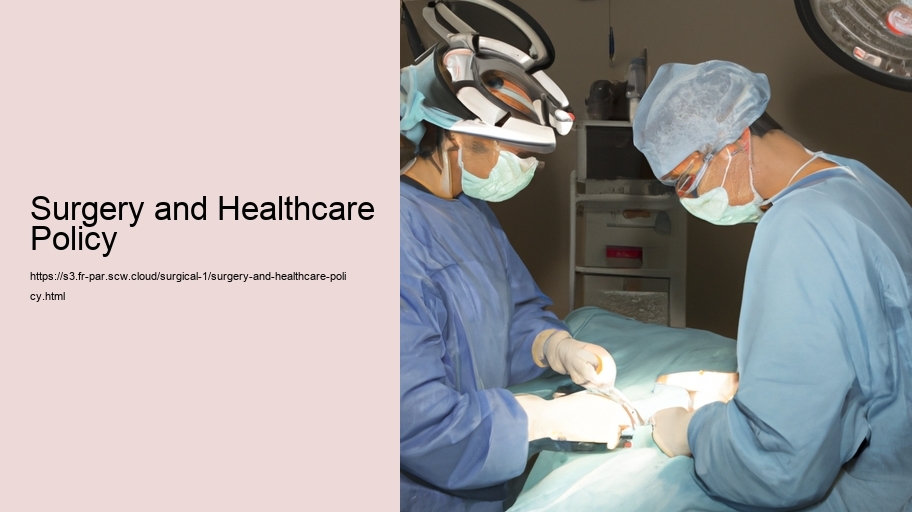"Surgery and Healthcare Policy: Navigating the Complex Interplay"
The intricate world of healthcare policy is a labyrinthine system that governs the accessibility, quality, and affordability of surgical care. Surgery remains one of the most critical and life-saving services within the healthcare spectrum; however, the intertwining relationship between surgical procedures and healthcare policy can, at times, seem convoluted and enigmatic. In this essay, we will explore the dynamic interplay between surgery and healthcare policy, delving into the challenges, opportunities, and ramifications of policy decisions on surgical practice.
Healthcare policy serves as the backbone of a nation's health system, shaping the way in which surgical care is delivered, financed, and regulated. Policies dictate who receives surgery, when they receive it, and the quality of care they can expect. From the corridors of government to the operating rooms of hospitals, the effects of healthcare policy are profoundly felt by both patients and practitioners.
One of the fundamental aspects of healthcare policy is the allocation of resources. Surgical procedures can be resource-intensive, often requiring specialized equipment, skilled personnel, and postoperative care. Healthcare policy must balance the demand for surgery with the finite resources available. This is particularly challenging in low- and middle-income countries, where limited healthcare budgets and infrastructure constraints can significantly impede the provision of adequate surgical care. In such settings, policy decisions must prioritize interventions that offer the greatest benefit to the population, sometimes at the expense of more complex or less critical surgical services.
Accessibility to surgical care is another critical issue that healthcare policy must address. Disparities in surgical access are stark, both between and within countries. Rural areas often suffer from a shortage of surgeons and healthcare facilities, forcing patients to travel long distances for care, if they can afford it at all. Healthcare policies that promote the training and distribution of surgeons, nurses, anesthesiologists, and other healthcare professionals across geographic areas are crucial for improving access to surgery. Additionally, policies that incentivize the establishment of surgical centers in underserved regions can alleviate the access gap.
The quality of surgical care is directly influenced by healthcare policies that set standards and regulations. These policies ensure that surgical practices adhere to evidence-based guidelines, thus minimizing the risk of complications and improving patient outcomes. Accreditation programs, continuous professional development, and regular audits of surgical outcomes are examples of policy tools used to maintain and enhance quality. Furthermore, policies that encourage research and innovation in the field of surgery can lead to improved techniques, better patient care, and more efficient use of resources.
Financial aspects of surgery represent yet another critical area where healthcare policy plays a crucial role. The cost of surgical procedures can be prohibitive for many individuals, leading to financial hardship or even the avoidance of necessary care. Healthcare policies that provide coverage for surgery through insurance schemes, subsidies, or national health services can greatly reduce the financial barrier to surgical care. These policies must be carefully crafted to ensure sustainability while avoiding the pitfalls of overutilization or the unnecessary escalation of healthcare costs.
The integration of technology in surgical care is also a policy concern. Advances in medical technology, such as robotic surgery or telemedicine, can improve surgical outcomes and access. However, they also raise questions about cost, training, and the potential widening of the accessibility gap between rich and poor. Policies that foster the responsible adoption of new technologies, while ensuring equitable access across different population segments, are essential.
In conclusion, the nexus of surgery and healthcare policy is a complex yet vital one. Policies that ensure equitable access to high-quality surgical care without imposing an undue financial burden on patients are the cornerstone of a robust health system. Policymakers, healthcare professionals, and community stakeholders must work in concert to develop and implement policies that address the multifaceted challenges of providing surgical care. In doing so, they will not only enhance the health and well-being of individuals but also contribute to the broader social and economic development of society.
